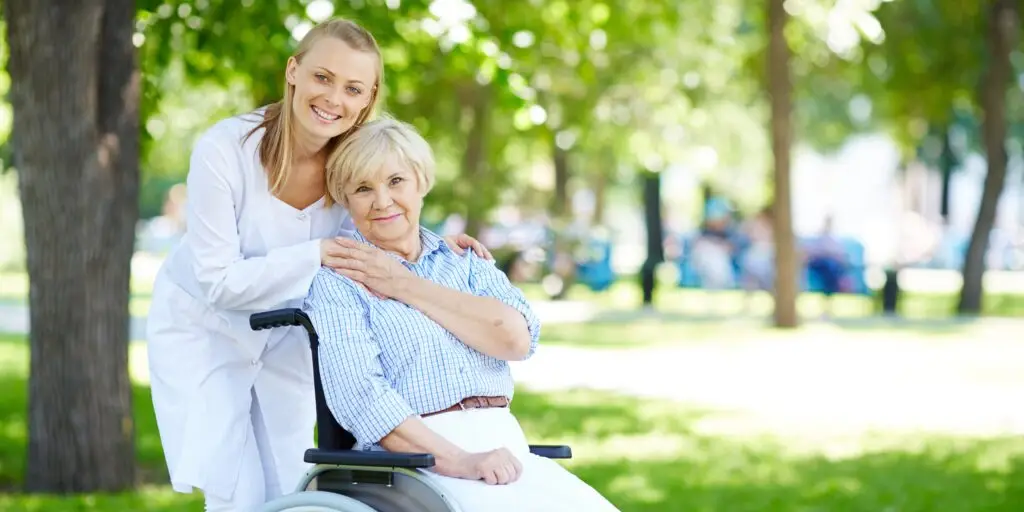
“Caregiving often calls us to lean into love we didn’t know possible.” ~Tia Walker
Being a caregiver is one of the hardest and most important roles you can take on. Whether you’re caring for a parent with dementia, a spouse with cancer, or a neighbor who can’t manage daily tasks anymore, caregiving changes both of your lives. The difference between “getting by” and being excellent lies in the details: how you listen, how you plan, and how you care for yourself while caring for someone else.
We’ve worked with families across Alberta, and we’ve seen the mistakes that burn caregivers out, and the habits that make them extraordinary. Let’s look at what really matters.
1. Listen Beyond Words
Caregiving isn’t only about physical support. It’s about noticing the small cues that tell you what someone truly needs. A senior may say, “I’m fine” when asked about pain, but their body language; shifting in the chair, avoiding meals, tells another story.
Research from the Canadian Institute for Health Information (CIHI, 2022) shows that communication problems often delay treatment and worsen outcomes for people with chronic illness. An excellent caregiver learns to read both what is said and what is not said.
Scenario: Your father with diabetes tells you he isn’t hungry. Instead of pushing food, you might ask, “Are you feeling nauseous? Did the insulin make you shaky?” That small shift shows empathy and leads to better problem-solving.
2. Balance Independence and Safety
One of the hardest parts of caregiving is deciding when to step in and when to step back. Many people, especially seniors, feel stripped of their dignity when every decision is made for them.
A 2018 study in The Gerontologist found that older adults who retained control over daily choices, such as meals, clothing, or schedules, had lower rates of depression and higher quality of life, even when physically dependent.
Scenario: A woman with early Parkinson’s wants to keep dressing herself even though it takes twice as long. An excellent caregiver lets her, while staying nearby to help with buttons or balance. You protect safety but also preserve independence.
3. Learn the Health Basics (But Know Your Limits)
You don’t need to be a nurse, but understanding the basics of the condition you’re supporting makes you more effective. For example, if you care for someone with heart failure, knowing the warning signs, like sudden weight gain or swelling in the ankles, helps you catch problems early.
Fact: The Heart and Stroke Foundation of Canada reports that recognizing early warning signs reduces hospital admissions for heart patients by nearly 30%.
But being excellent also means knowing your limits. You’re not a doctor. You should observe, record, and share changes with health professionals, not shoulder the medical burden alone.
4. Build a Care Team, Not a Burden
Too many caregivers think they must do everything themselves. That mindset leads to burnout, resentment, and sometimes even health decline in caregivers. According to Statistics Canada (2020), over 25% of family caregivers report poor mental health because they lack support.
Excellent caregivers build networks: home care agencies, respite services, community programs, support groups. It isn’t weakness, it’s strategy.
Scenario: You’re caring for your spouse with cancer. You arrange for a home support worker twice a week to help with bathing, while you handle meals and companionship. That division keeps you from exhaustion and ensures better overall care.
5. Care for Yourself Without Guilt
This is the point caregivers often roll their eyes at, but it’s the one that makes or breaks you. If you don’t eat well, sleep, or have space for your own life, your stress will show in your care.
The Alzheimer Society of Canada reports that caregiver burnout is one of the main reasons people with dementia are moved into long-term care facilities earlier than needed. In other words, your well-being directly affects how long your loved one can stay at home.
Scenario: You feel guilty for leaving your mother alone to take a walk. But when you return refreshed, you’re calmer, more patient, and more attentive. That’s excellent caregiving.
The Bottom Line
Excellence in caregiving isn’t about perfection. It’s about being present, protecting dignity, staying informed, and knowing you cannot, and should not, do it alone. Listening deeply, balancing safety with independence, learning the essentials, building a team, and protecting your own health are the steps that transform caregiving from overwhelming to meaningful.
If you’re stepping into this role, remember: being excellent doesn’t mean being superhuman. It means being human enough to care wisely, consistently, and with heart.

